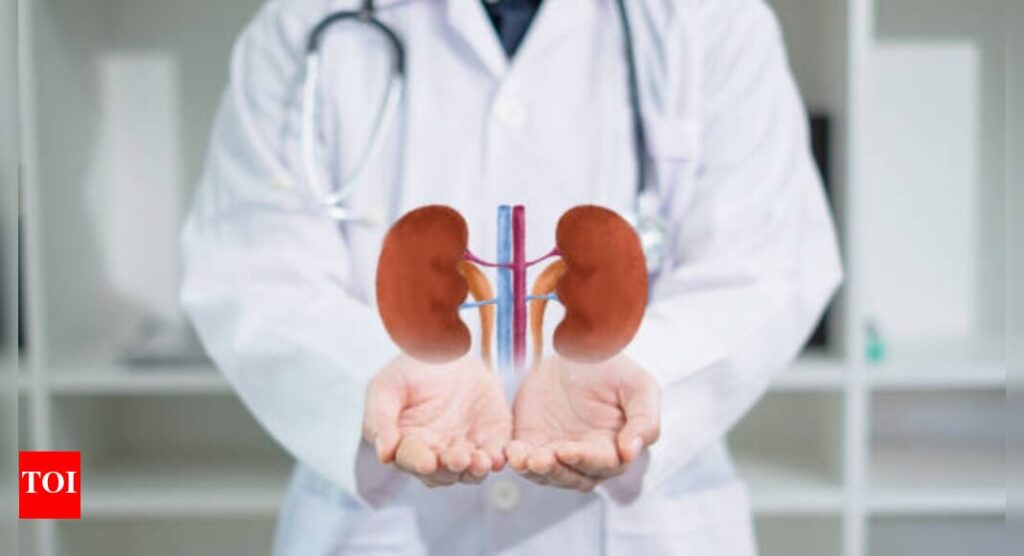“`html
Kidneys and Creatine: How to Make Sure the Supplement Doesn’t Backfire on Kidney Health
By Qalitex | Southern California’s Trusted ISO 17025 Accredited Testing Laboratory
Introduction: What You Need to Know About Creatine and Kidney Health
Creatine supplements are a popular choice among athletes, bodybuilders, and fitness enthusiasts aiming to boost muscle strength and performance. However, concerns about creatine’s potential impact on kidney health persist among consumers and healthcare professionals alike.
According to recent reports, including an insightful article from The Times of India, proper usage of creatine and quality control of supplements are crucial factors to ensure kidney safety.
How Does Creatine Affect the Kidneys?
Creatine is naturally produced in the body and filtered through the kidneys before excretion. Excessive or improperly dosed supplements might cause elevated creatinine levels — often misinterpreted as kidney damage. However, scientific research shows that for healthy individuals, creatine supplementation within recommended guidelines is generally safe.
The critical factor is ensuring supplements are free from contaminants and accurately dosed, which requires rigorous regulatory compliance lab services and certificate of analysis (CoA) testing from accredited facilities.
Ensuring Safe Creatine Supplements Through Accredited Testing
Quality control and thorough testing of dietary supplements, including creatine products, are vital in safeguarding kidney health. Qalitex is a leading ISO 17025 accredited testing laboratory located in Irvine, California, specializing in:
- Analytical chemistry lab testing – confirming active ingredient purity and dosage accuracy.
- Heavy metal analysis for supplements – detecting harmful contaminants like lead and cadmium, which can strain the kidneys.
- Certificate of analysis (CoA) testing – providing proof of compliance and safety for creatine products.
- Shelf-life and stability studies – ensuring supplements maintain potency and safety over time.
Using FDA compliant product testing and USP AOAC validated methods, Qalitex guarantees that creatine supplements meet or exceed regulatory standards designed to protect kidney health.
Why Choose Qalitex For Creatine Supplement Testing?
Operating at the intersection of science and regulation, Qalitex is your trusted partner to:
- Ensure strict ISO 17025-accredited testing for credible certification.
- Provide comprehensive microbiology testing services that confirm product safety beyond just chemical analysis.
- Perform detailed method development and validation to tailor testing for novel creatine formulations.
- Support manufacturers aiming for regulatory compliance lab services, ensuring products are safe and market-ready.
Located in Southern California, Qalitex is uniquely positioned to serve regional supplement brands and support global quality requirements seamlessly.
Practical Tips For Using Creatine Without Risking Kidney Health
- Consult your healthcare provider before starting supplements, especially if you have pre-existing kidney conditions.
- Choose products with validated certificates of analysis (CoA) confirming purity and dosage accuracy.
- Avoid excessive dosages; stick to recommended daily amounts.
- Ensure supplements are tested by ISO 17025 accredited labs, such as Qalitex, to minimize risks from contaminants.
- Stay hydrated while using creatine to aid kidney filtration.
Conclusion: Safeguarding Kidney Health With Responsible Creatine Use and Quality Testing
Creatine supplementation, when done responsibly and supported by rigorously tested, high-quality products, does not inherently harm kidney health in healthy individuals. The key is high standards of product testing and compliance that licensed laboratories like Qalitex provide. Using ISO 17025 accredited, FDA-compliant, and USP AOAC validated methods, Qalitex ensures your creatine supplements meet the safety benchmarks that protect you and your kidneys.
For supplement manufacturers or users in Southern California seeking trusted laboratory partners, get a quote from Qalitex today to guarantee peace of mind through rigorous testing.
Frequently Asked Questions (FAQs) About Creatine Supplement Safety and Qalitex Testing
- How can I ensure my creatine supplement is safe for my kidneys?
- Look for supplements with a valid certificate of analysis (CoA) from an ISO 17025 accredited testing laboratory like Qalitex, which verifies purity, dosage, and absence of contaminants harmful to kidneys.
- What role does Qalitex play in preventing creatine-related kidney issues?
- Qalitex provides comprehensive testing including heavy metal analysis and analytical chemistry lab tests that detect harmful substances, ensuring supplements do not pose a kidney health risk.
- Why is accreditation like ISO 17025 important for supplement testing?
- ISO 17025 accreditation ensures testing laboratories operate under globally recognized quality standards, providing reliable, accurate, and reproducible results essential for kidney-safe creatine supplements. Learn more at Qalitex’s accreditation page.
- How often should creatine supplements undergo stability and shelf-life testing?
- Manufacturers should conduct shelf-life and stability studies regularly to ensure creatine potency and safety over time, protecting kidney health by preventing degradation products formation.
- Can Qalitex help develop and validate testing methods for new creatine formulations?
- Yes. Qalitex offers expert method development and validation lab services tailored to innovative creatine supplements, ensuring regulatory compliance and safety.
“`





